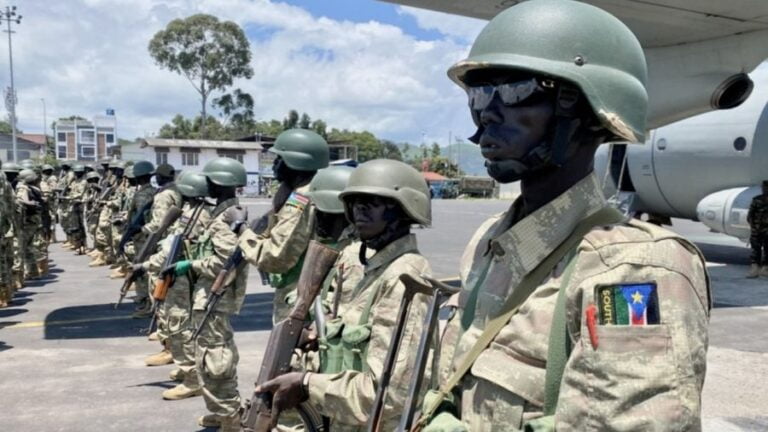Deter, Defend and Spy on Your Friends
There’s no guarantee whatever that the NSA has refrained or will refrain in future from eavesdropping on Washington’s NATO allies.
In May there were many media reports concerning Steadfast Defender which is a series of land, air and sea deployments and manoeuvres by armed forces of nations of the U.S.-Nato military alliance that in the words of Secretary General Jens Stoltenberg are designed to show that Nato has “the resolve to deter and defend across the Euro-Atlantic area”. It was reported that “part of the focus of its first phase was to protect the undersea cables that carry masses of commercial and communications data between the U.S. and Europe. Nato says Russia is mapping the cables’ routing and might have darker intentions.”
Following Stoltenberg’s speech, delivered on board the British aircraft carrier Queen Elizabeth on May 27, Vice Admiral Andrew Lewis, commander of the U.S. Second Fleet and of Nato’s Joint Force Command for the Atlantic, issued a warning about the vulnerability of undersea cables, saying “we all lulled ourselves into thinking that the Atlantic was a benign region in which there was not anything bad going on, and we could just use it as a free highway. There are nations are out there mapping those cables. They may be doing something else bad. We have to be aware of that and answer that.”
In April the U.S. Navy News commented that “few corners of the submarine world are seen as sneakier than covert operations against undersea communications cables” and predictably focused on Russia by noting that its navy “has unique undersea warfare capabilities designed to operate on undersea cables. This could include planting listening devices or, in extreme cases, breaking the connection.” From this it is assessed that the Pentagon considers it shocking that a nation’s confidential communications should be intercepted or otherwise interfered with by the intelligence services of another country.
And the world was duly shocked when three days after Stoltenberg and Lewis issued their warnings to beware of cable-tampering and interception, a European media outlet, Danish Radio, revealed that there had been instances of eavesdropping “on Danish information cables to spy on senior officials in Sweden, Norway, France and Germany from 2012 to 2014.” Some of the political figures targeted were Germany’s Chancellor Angela Merkel, Foreign Minister Frank-Walter Steinmeier and former opposition leader Peer Steinbruck. The public will never know how many thousands of legislators, government administrators, commercial representatives and others were targeted in the interception campaign.
It was even more shocking to be informed that the spying had been done by the National Security Agency of the United States of America which notifies us officially that it operates as it does because “national decision makers need to know what our adversaries are doing and what their capabilities are so they can make decisions and plans, and execute policies and operations.” It has not yet been explained how listening to Chancellor Merkel’s phone calls and reading her emails can have contributed to Washington’s ability to “execute policies and operations” focused on adversaries, but perhaps that will be made known in due course. (As we all look out of our windows to watch the flying pigs pass by.) For the moment, however, when Secretary General Stoltenberg was asked by a journalist if he thought the U.S. spying exposure might “cause some tension” ahead of the Nato meeting on June 14 he replied “it’s not for NATO to go into these issues. I expect that those Allies that are involved will sit down and find ways to establish the facts and deal with these issues.”
It is unusual for Mr Stoltenberg to avoid commenting on international affairs, and especially about matters involving breaches of national security, and in this case it might be thought that the “issue” was decidedly relevant to the existence and purpose of the U.S.-Nato military alliance. It was intriguing that Nato’s Secretary General had nothing to say about the fact that the intelligence services of two of its members, the U.S. and Denmark, were involved in intercepting the personal communications of senior figures in at least two other Nato countries whose leaders are understandably perturbed by the operation.
On May 31 French President Emmanuel Macron said this sort of conduct “is not acceptable amongst allies,” and “there is no room for suspicion between us. That is why we are waiting for complete clarity. We requested that our Danish and American partners provide all the information on these revelations and on these past facts. We are awaiting these answers.” Chancellor Merkel said she “could only agree” with these sentiments, but did not go further, which was surprising because she had already been the victim of phone tapping by U.S. Intelligence agencies, and had said that “spying between friends just isn’t on”. Investigation of that particular interception scheme was quietly dropped after Germany’s Federal Prosecutor said it had not been possible to prove that the key document in the case was “an authentic eavesdropping order from the NSA or another U.S. intelligence agency,” or that it showed for certain the chancellor’s phone had been tapped. It was a total cover-up.
And this current scandal will also be quietly buried — in spite of the fact that Denmark Radio’s investigation “found the NSA had access to extensive data streams that run through internet cables to and from Denmark and intercepted everything from text messages and telephone calls to internet traffic including searches, chats and messaging services.”
Last October the defence ministers of Nato countries had a teleconference meeting hosted in Brussels and as usual Secretary General Stoltenberg had a great deal to say (including the absurd shock-horror warning that “countries like China are investing aggressively in ports and airports”), and made several observations about undersea communications’ cables.
When a reporter said that “Nato’s military leadership is warning that Russian navy is aggressively probing undersea communications cable networks. So I would like to know if this subject was raised today and if so, if there was any concrete decision on how to respond to those kind of threats?” Mr Stoltenberg replied that he was indeed concerned about their vulnerability, “because, as you know, they transmit the vast majority of global communications data: telecommunications, transmission of data, financial markets are dependent on undersea cables.” He noted especially that “We have tools to protect them and to monitor threats. And we have also established a new Atlantic Command in Norfolk, a new NATO command . . .and one of the tasks of this new Command is also to look into how to protect, how to monitor threats against undersea infrastructure. For instance, the internet is dependent on these cables and that just highlights the importance of the undersea cables.”
But it seems that when cables belonging to Nato countries are tapped by the U.S. National Security Agency, then there is no protection to be had from Nato’s new Atlantic Command. Indeed, we might reasonably ask if the Atlantic Command is itself involved in tapping cables.
Mr Stoltenberg says that Nato has “the resolve to deter and defend across the Euro-Atlantic area”, but it is obvious that it has been pretty selective about its resolution. And there’s no guarantee whatever that the NSA, having been found out in its techno-dweeb antics, has refrained or will refrain in future from eavesdropping on Washington’s Nato allies. It will just go deeper undersea and carry on spying on its friends.







